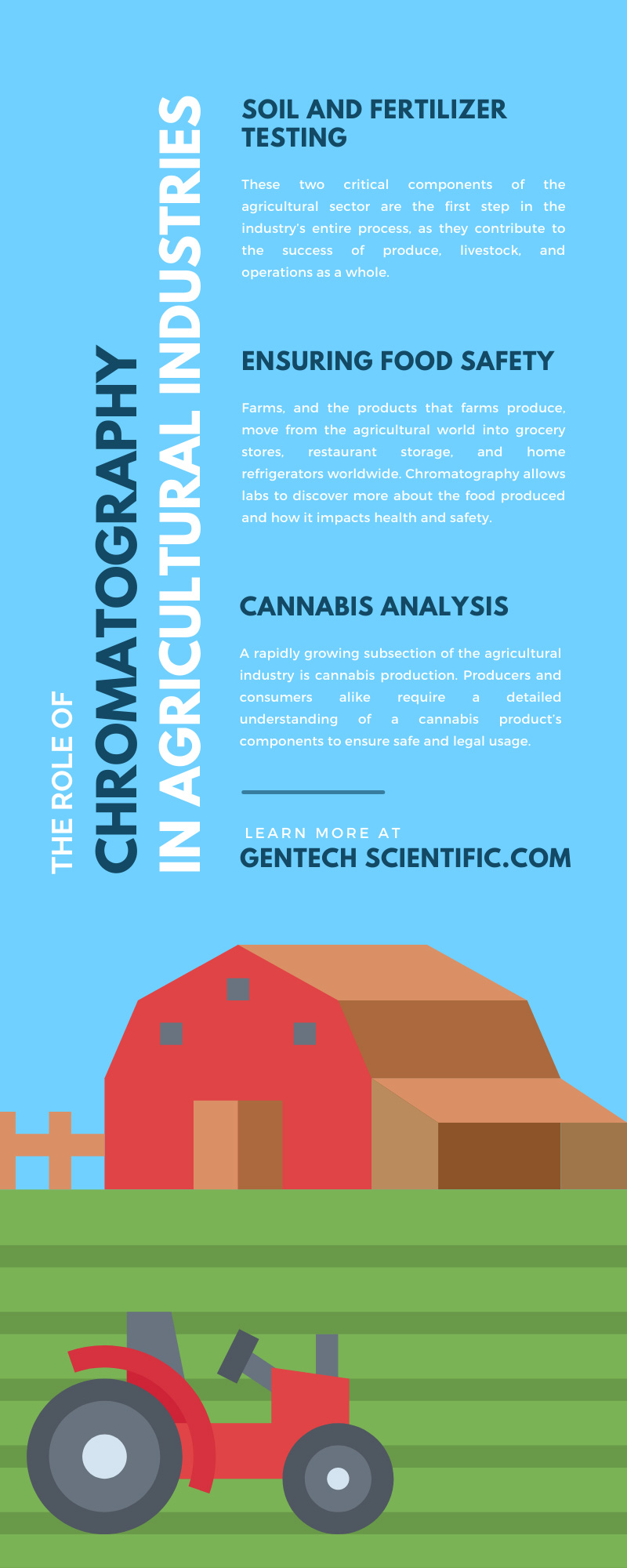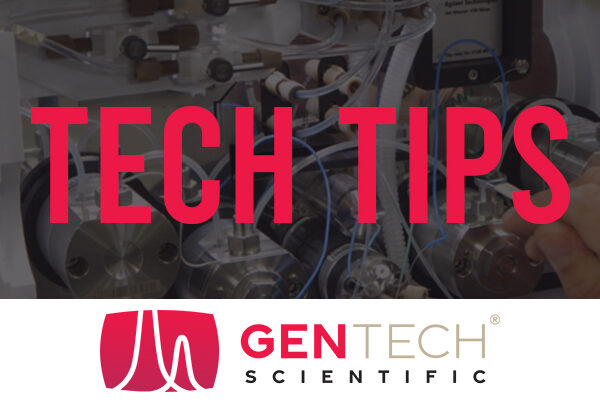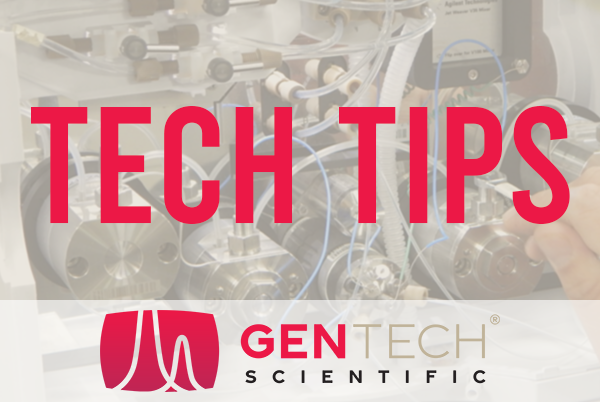Every facet of the agricultural industry relies on critical safety measures and a system that double-checks products each step of the way to protect consumers. Chromatography, including gas chromatography and High-Performance Liquid Chromatography (HPLC), is one of many players in the agricultural safety net. Laboratories use this analysis technique in a variety of agricultural industries to perform critical tests and alert companies and consumers alike to issues as soon as they arise. Continue reading to discover more about the role of chromatography in agricultural industries in the United States.
Soil and Fertilizer Testing
One area of the agricultural industry where chromatography plays a significant role is in soil and fertilizer testing. These two critical components of the agricultural sector are the first step in the industry’s entire process, as they contribute to the success of produce, livestock, and operations as a whole. Some instances when soil and fertilizer testing impact the industry include:
Using the Correct Soil
Each type of produce requires a unique set of nutrients from the soil to succeed in the quantities that modern farming requires. Creating the ideal growing environment for farming starts with understanding what the soil and fertilizer on a property contribute to plant life. If a company purchases a used farm, it can have the existing soil tested to better understand what chemicals were used on the property previously. Chromatography also helps farms assess the current fertility of the soil and make changes to the soil’s contents to produce a maximum yield in the following season.
Earning Organic Certification
For a farm or company to earn the USDA’s organic certification and accreditation, it must meet specified requirements that focus on the substances used during food production. Gas chromatography is one way that inspectors work with labs to confirm that the operation is avoiding pesticides or other substances that would negate its eligibility.
Inspectors first take a soil, tissue, or product sample during a site visit. Lab technicians then use chromatography techniques to separate the item into its individual components, allowing scientists to note any suspect compounds and produce an accurate report for the inspector. The USDA relies on chromatography’s quick turnaround and accuracy to correctly designate organizations as organic and pass that information on to consumers.
Ensuring Food Safety
Farms, and the products that farms produce, move from the agricultural world into grocery stores, restaurant storage, and home refrigerators worldwide. Chromatography allows labs to discover more about the food produced and how it impacts health and safety. The following are two examples of chromatography playing a role in food analysis:
Measuring Nutritional Value
Understanding the nutritional value of ingredients and the meals they produce allows consumers, physicians, and lawmakers to make health-conscious decisions regarding food. Labs play a key role in producing accurate data that informs the public as to the contents of the goods they purchase. High-Performance Liquid Chromatography (HPLC) provides insights into the components of foods, including the protein value and vitamin content of each ingredient.
Examining Additives
Additives perform a variety of functions in the foods that include them. For example, docosahexaenoic acid (DHA) is commonly used in infant formulas or taken as a supplement by pregnant mothers to provide omega-3 fatty acids. Analysis of products claiming to provide omega-3 fatty acids can undergo chromatography analysis for confirmation and help guide consumers on which products to trust.
However, in the same way that agricultural organizations pursue organic certifications, many consumers desire products that are additive-free. HLPC also allows labs to identify product adulteration. This information can prevent companies from falsely advertising their product as additive-free and protect consumers shopping with allergies or unique diets in mind.
Cannabis Analysis
A rapidly growing subsection of the agricultural industry is cannabis production. Producers and consumers alike require a detailed understanding of a cannabis product’s components to ensure safe and legal usage. Gas chromatography is a technique heavily relied on by the industry, both to inspect for contaminates and measure the unique components of the cannabis product.
Identifying Residual Solvents
Solvents are a key part of the process for many ingestible cannabis products. These chemicals separate the plant matter from the desired components to create isolates as well as several consistencies of concentrates. However, only Class 3 solvents such as butane or ethanol are considered safe for use.
It’s important for safety’s sake to confirm the solvent used by the company creating the product. Gas chromatography allows scientists to analyze the components of a given product and identify solvents present in the final product. After identifying the solvent as an acceptable Class 3, analysis labs measure the presence of residual solvent left behind by the process. A product is acceptable only if its residual solvent levels remain within regulatory limits.
Cannabinoid Characterization and Potency
Both the pharmaceutical and recreational industries rely on information regarding a cannabinoid’s characterization and potency. These two factors allow medical professionals and consumers to make informed decisions regarding the type of cannabinoid they use according to the desired effects. Understanding a cannabis product’s potency also helps manufacturers and resellers operate according to their state or region’s current cannabis laws.
Overall, the role of chromatography in agricultural industries is to identify the exact components of grown, consumable products. Understanding the contents of the food we eat gives us the opportunity to make the right choices for our health and safety. Lab analysis requirements also limit dangerous or mislabeled consumable products from entering the market. Without chromatography techniques, manufacturers and consumers alike would lack a complete picture of the contents of what we eat and the agricultural products we use.
If your lab is in need of gas chromatography equipment, GenTech Scientific has got you covered. We work with labs in both academic and commercial settings, providing expertly refurbished equipment, decades of experience, and professional customer service to every client we meet. Browse our selection of gas chromatography equipment online and contact us for a quote when you’ve found the machinery you’re interested in. You can also give us a call, and one of our team members will gladly help you find the right equipment for your needs!






